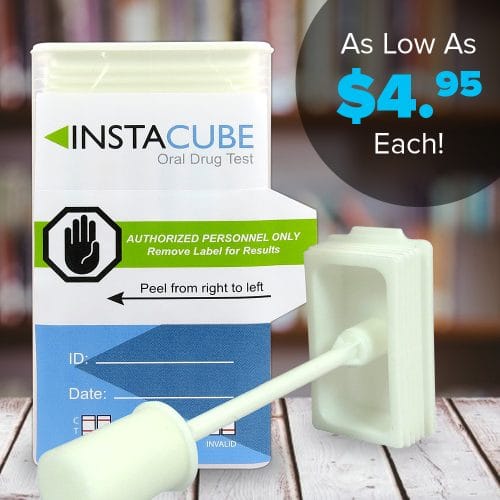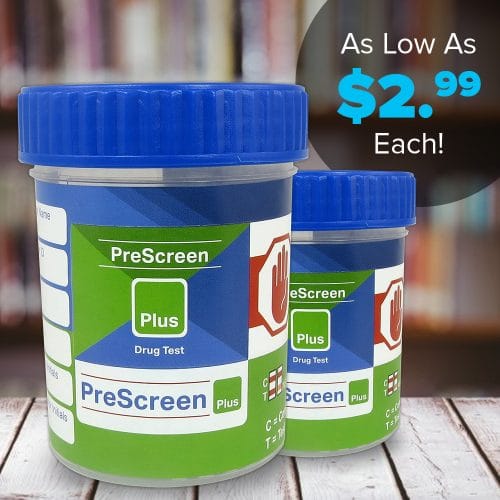Drug testing has become increasingly important in various aspects of life, from workplace screening to personal health management. At-home drug tests have gained popularity as a convenient and accessible way for individuals to monitor their own drug use or screen for substance use disorders. In this comprehensive guide, we will explore the purpose of at-home drug tests, what these tests measure, the different types available (urine, saliva, breathalyzers, hair), their benefits and downsides, key features to look for, considerations when shopping for one, and whether they are covered by insurance.
Purpose of At-Home Drug Tests
At-home drug tests serve several purposes:
- Personal Monitoring: Many individuals use at-home drug tests to monitor their substance use, especially if they are concerned about the presence of drugs in their system or are undergoing addiction recovery.
- Parental Control: Parents may use these tests to ensure that their children are not using drugs. It can be valuable for open communication and maintaining a drug-free household.
- Pre-Employment Screening: Some job applicants use at-home drug tests to check their drug use before applying for positions that require drug testing. This allows them to address any potential issues in advance. Prescription medications may show on drug tests as controlled substances and it can be a good thing to know as to inform the potential employer that prescribed medications may show in the screening.
- Post-Accident or Suspicion Testing: Individuals who work in safety-sensitive jobs may use at-home tests to check their sobriety before returning to work after an accident or if they suspect they may have used drugs.
- Health Monitoring: Healthcare professionals may recommend at-home drug tests to patients who are prescribed controlled substances to ensure compliance with medication regimens and prevent misuse.
What Do At-Home Drug Tests Measure?
At-home drug tests measure the presence of specific drugs or their metabolites (substances produced when the body breaks down drugs) in bodily fluids or hair. The most common substances tested for include:
- Marijuana (THC): Many at-home tests check for the presence of THC, the psychoactive compound in cannabis.
- Opiates: These tests detect drugs like heroin, morphine, and prescription opioids.
- Amphetamines: Amphetamine and methamphetamine are commonly screened drugs.
- Cocaine: Tests can identify cocaine use.
- Benzodiazepines: These tests target drugs like Xanax, Valium, and Ativan.
- Synthetic Drugs: Some tests can detect synthetic drugs like synthetic cannabinoids (K2 or Spice) and synthetic cathinones (bath salts).
- Alcohol: Breathalyzers measure alcohol levels in a person’s breath.
Which At-Home Drug Test Should I Choose?
At-home drug tests come in various forms, each catering to different needs:
- Urine Tests: Urine tests are among the most common and affordable options. They can detect recent drug use and are available in single-drug or multi-drug panels.
- Saliva Tests: Saliva tests are non-invasive and easy to use. They provide quick results and are suitable for detecting recent drug use.
- Hair Tests: Hair tests offer a longer detection window, typically up to 90 days. They are highly accurate but can be more expensive and may require laboratory processing.
- Breathalyzers: Breathalyzers are used to measure blood alcohol content (BAC) and are commonly used to test for alcohol use.
The choice of an at-home drug test depends on the substances you want to screen for, the required detection window, and your budget.
Benefits and Downsides of At-Home Drug Tests
Benefits:
- Privacy: At-home drug tests provide privacy and confidentiality, allowing individuals to test themselves without involving external parties.
- Convenience: These tests are readily available and easy to use, making them accessible to a wide range of people.
- Quick Results: Most at-home tests provide rapid results, which can be crucial in certain situations.
- Cost-Effective: Compared to laboratory-based testing, at-home drug tests are often more budget-friendly.
Downsides:
- Limited Accuracy: While at-home drug tests are generally accurate, they may have a higher chance of false positives or negatives compared to lab tests.
- Detection Window: The detection window for some drugs may be limited, potentially missing recent drug use.
- Limited Substances: At-home tests may not cover all drugs or specific drugs of concern.
- Adulteration: There is a risk of adulteration, where individuals attempt to manipulate test results by diluting or substituting samples.
Key Features of an At-Home Drug Test
When shopping for an at-home drug test, consider the following key features:
- Type of Test: Choose the test that suits your needs, whether it’s a urine, saliva, hair, or breathalyzer test.
- Number of Panels: Multi-panel tests can detect multiple drugs simultaneously, providing comprehensive results.
- Accuracy: Look for tests with a reputation for accuracy and reliability.
- Ease of Use: Ensure the test comes with clear instructions and is user-friendly.
- Detection Window: Understand the detection window for the substances you want to test.
- Brand Reputation: Research and choose reputable brands to ensure test quality.
- Certifications: Check if the test has certifications or approvals from relevant authorities.
What to Consider When Shopping for an At-Home Drug Test
- Purpose: Determine why you need the test and what substances you want to screen for.
- Detection Window: Consider the timeframe in which you want to detect drug use.
- Budget: At-home drug tests vary in price, so choose one that aligns with your budget.
- Reviews: Read user reviews and testimonials to gauge the performance of the test.
- Ease of Use: Opt for tests that are straightforward to use and interpret.
- Certifications: Check if the test has undergone any certifications or validations for accuracy.
- Customer Support: Ensure the manufacturer provides adequate customer support for any queries or concerns.
Are At-Home Drug Tests Covered by Insurance?
In most cases, at-home drug tests are not covered by insurance. Insurance typically covers medically necessary laboratory-based drug tests conducted by healthcare professionals. At-home tests are considered personal expenses and are not reimbursable through insurance policies.
At-home drug tests offer a convenient way to monitor drug use, ensure compliance with prescribed medications, and maintain a drug-free environment. Understanding the purpose of these tests, what they measure, the available options, benefits, downsides, key features, and considerations when shopping for one can help individuals make informed decisions about their health and well-being. While at-home drug tests provide privacy and accessibility, it’s essential to use them as a tool for personal awareness and not as a replacement for professional healthcare advice and treatment when needed.



